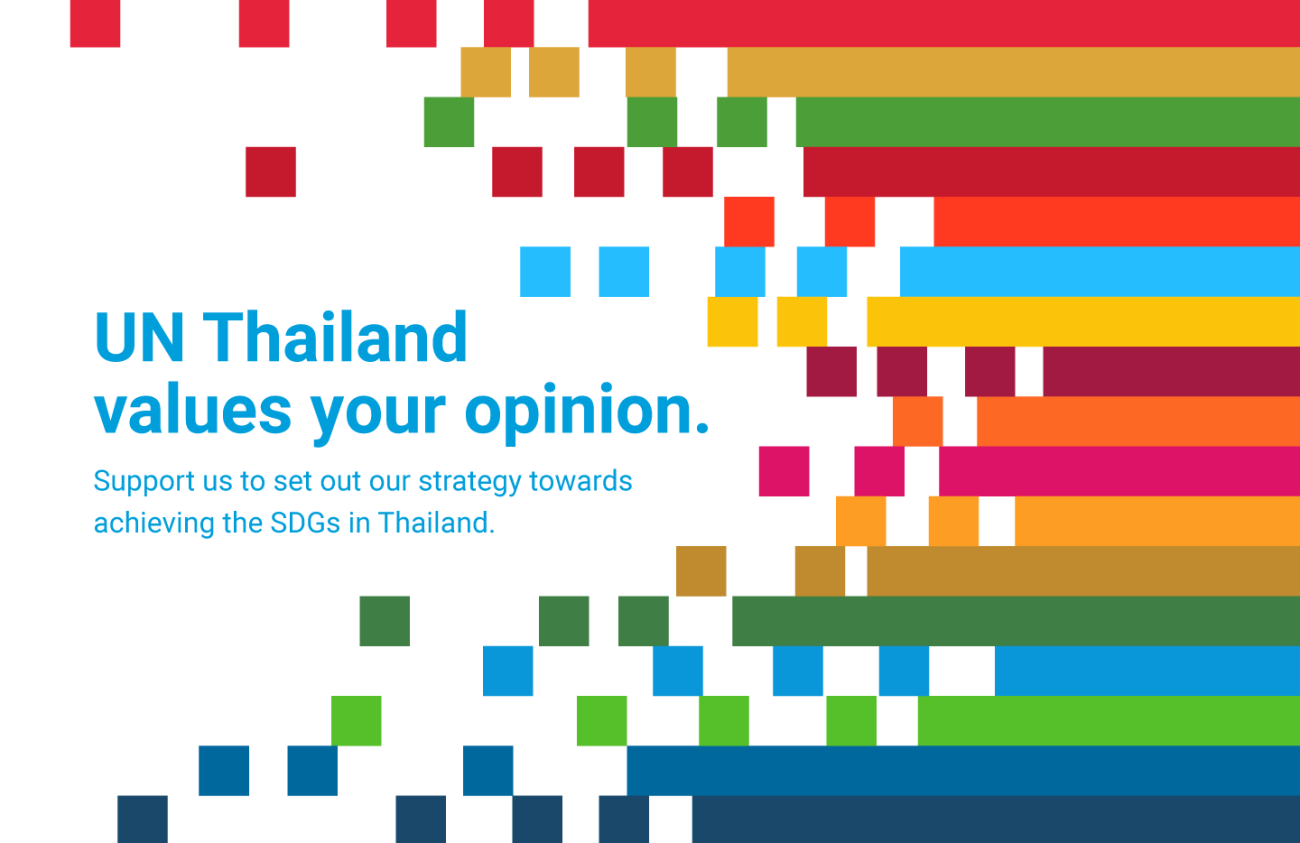The UN Thailand is in the process of putting together our next strategy over the next five to six years. This strategy is called the UN Sustainable Development Cooperation Framework (UNSDCF). It sets out our vision and partnership with Thailand to realize the Sustainable Development Goals (SDGs). Our strategy is aligned with the priorities and milestones of the draft 13th National Economic and Social Development Plan (NESDP) of Thailand.
We prioritize three outcomes in this strategy. Read summaries below and share with us your thoughts through this form. You can find the background paper here.
Outcome 1 | The first outcome focuses on inclusive, green, resilient, low-carbon, sustainable economy.
This is aligned to the NESDP strategic priorities No. 1 and No. 3 which deal with high value-added green economy and eco-friendly living.
UN Focus Areas: UN to work together with Government on growing the economy while maintaining wellbeing in harmony with nature.
- Working together with private sector on reducing air pollution and creating jobs that don’t spoil the environment.
- Support the private sector to make sure their way of doing business isn’t harmful to the environment and that they take care of their employees.
- Promote cultural tourism that does not harm the environment.
- Find solutions for agriculture, such as using technologies, so that it won’t be affected by Climate Change.
- Encourage the private sector, including banks, to work together to decrease polluting the environment.
- Promote new and interesting ways of financing.
UN Focus Area: Reduce air pollution and be resistant to and better recover from disasters.
- Use more renewable energy so that the economy that does not come at the expense of the environment.
- Save and protect our natural habitat.
- Use data and work together to reduce air, water, and land pollution while improving waste management.
- Make communities and life under water stronger by adapting, avoiding reducing risk of disasters.
Outcome 2 | Our second outcome focuses on investing in human capital development through strengthening of institutions, partnerships, and the empowerment of people.
This is aligned to the NESDP strategic priority No. 4 which deals with key enablers for Thailand’s transformation.
UN Focus Area: Improve public services so that it’s easier for Thailand to transform.
- Improve education and the skills of people of all ages.
- Improve access to and the quality of online learning.
- Work together to address life-style diseases, health, nutrition, and promote new technology in health services.
- Help people with HIV to get same health care as everyone else.
UN Focus Area: Enable innovation so that people have more skills and are more productive in society.
- Work towards innovation and technology being available to everyone.
- Promote innovation and technology in the public sector.
- Work with people of all ages to find interesting ways to reach the sustainable development goals.
- Promote innovation and technology for improved food safety and nutrition.
- Help every person without discrimination
Outcome 3 | The third outcome focuses on ensuring that those at risk of being left furthest behind can participate and benefit from development, free from all forms of discrimination.
This is aligned to the NESDP strategic priority No. 2 which deals with high opportunity society for Thailand’s transformation.
UN Focus Areas: Make sure that everyone is treated equally, has the same opportunities and is not living in poverty.
- Expand social protection to all in Thailand.
- Ensure that decent work and social security benefits are available to everyone.
- Don’t leave anyone behind from education, healthcare, and social protection.
- Ensure women are treated equally at home and work.
- Support communities and local organizations to grow, focusing on those furthest left behind.
UN Focus Areas: Good governance, rule of law and social contract to reach the SDGs.
- Help the Government to reach the SDGs.
- Make sure that there are systems set up so that workers, employers, civil society, and private sector can better interact together.
- Make rule of law institutions accountable.
- Make data stronger so that it is used in decision making.


















